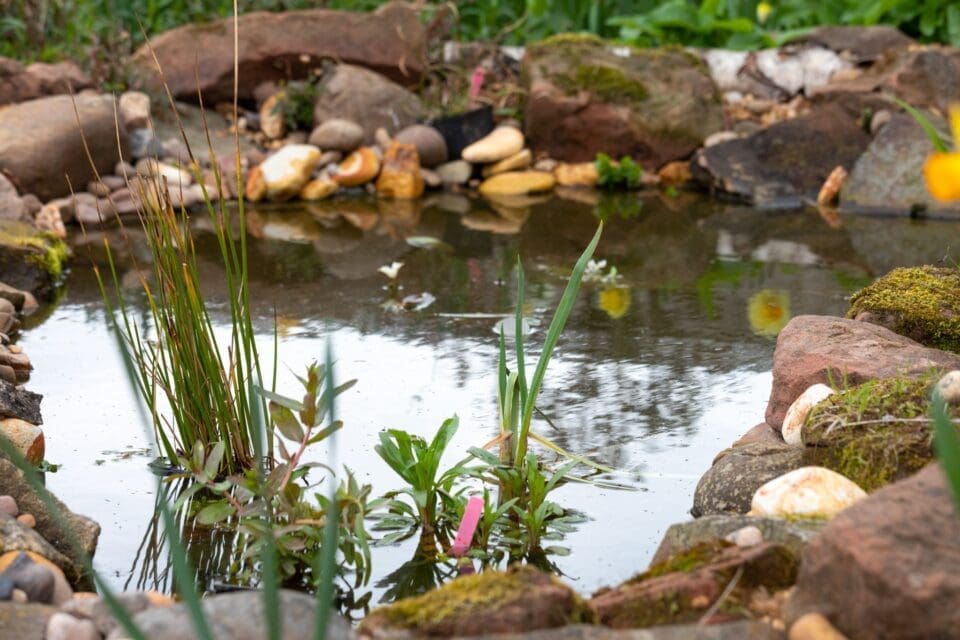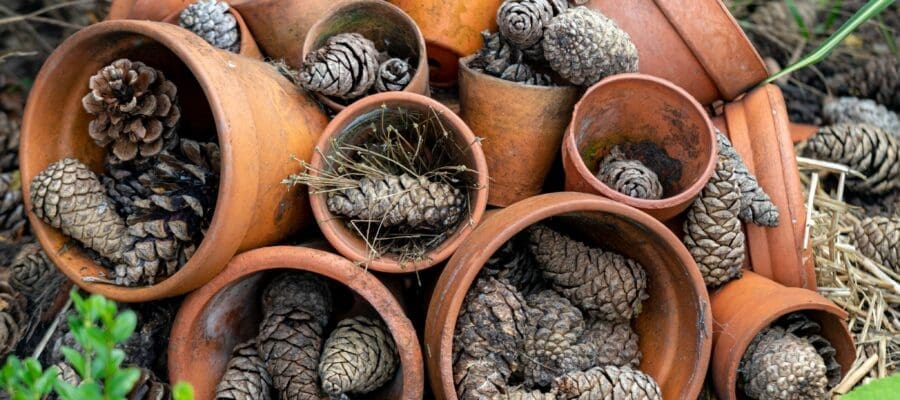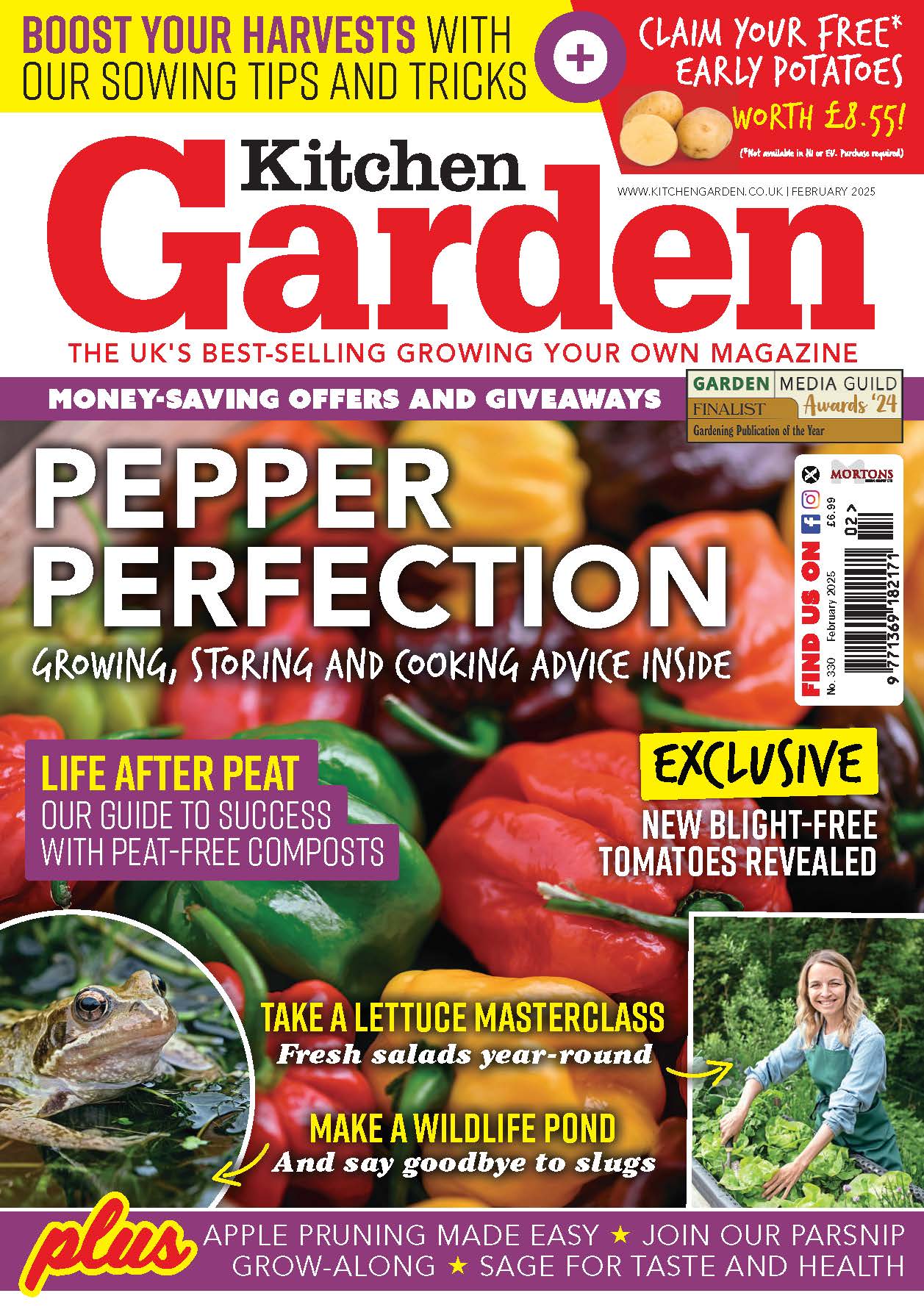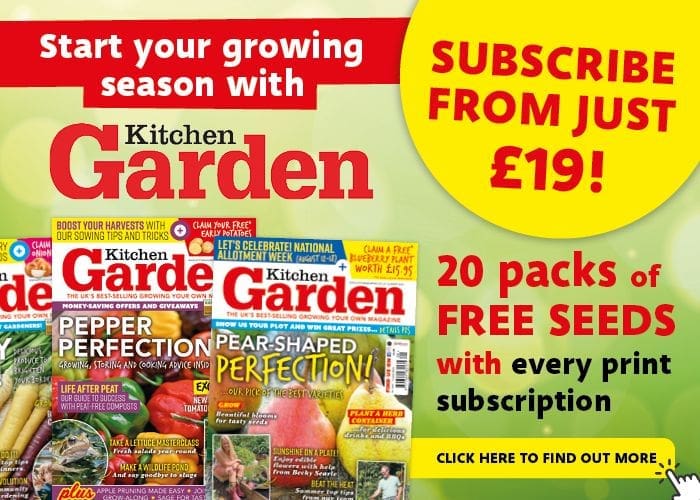Millions of gardeners across the UK are being urged to act now to halt the dangerous drop in the levels of birds, insects and other wildlife across the country.
A new research paper from Garden Organic/Henry Doubleday Research Association shows small actions taken in urban gardens can play a major role in restoring lost wildlife.
The study, called Every Garden Matters, has collated the latest data on biodiversity loss and reviewed the findings of extensive studies. It shows that small steps in backyards, balconies and allotments – such as planting a wider diversity of plants, improving soil health and creating habitats can have a major impact on wildlife numbers.
Since the 1970s there’s been a 13% decline in overall wildlife numbers in the UK, and within individual species 41% have shown a decline in number.
While the figures are alarming, Garden Organic says small measures taken by millions of gardeners can help stop and reverse this trend.
There are more than 520 thousand hectares of gardens in the UK1. This is just under a quarter of the size of Wales. If each one is managed sustainably and organically, it could change our landscape and benefit our wildlife.
Author of the report Dr Bruce Pearce, director of horticultural science at the research organisation and charity, outlines what and how to grow to boost biodiversity in your garden.

Key findings of the report
Any size garden will do
Big or small, pot or plot – interconnected gardens have a significant impact on biodiversity. Even small urban gardens offer high levels of nectar production, with 85% of the total nectar produced across a city provided by them.
Plant diversity equals diverse wildlife
The greater range of plants you can pack into your garden the better for wildlife density and soil health. It’s also about getting a balance between native/near native and non-native plants. Above ground invertebrates are more abundant under native or near-native plants, and indigenous birds are more successful in breeding in gardens with higher levels of native plants. Gardens can be designed and managed to favour particular species and could give gardeners a proactive role in the conservation of native birds.
Soil health is better on veg plots
Well-managed vegetable gardens have a similar soil biological quality to a forest. Soil quality and carbon content in allotments is better than in surrounding farmland, despite light soil disturbance.
Take care of your soil to take care of pests
Green manures and organic mulches can enhance soil organic matter, protect the soil and reduce run off. These practices can also reduce the density of pests and protect crops from more extensive damage much more successfully than using toxic pesticides.
Five garden biodiversity takeaways

Prepare for spring with these biodiversity boosters you can use in your own growing space…
1. Plant as wide a range of vegetables, flowers, shrubs and trees as you can. Many plants will tolerate being grown in containers. Choose native or near-native species, such as holly, wildflowers and ferns or grasses, as these are more beneficial for insects and birds.
2. Choose a range of plants that flower across the year to provide prolonged food for beneficial pollinators.
3. Include a diverse range of structures and habitats such as ponds, wood/leaf piles, banks and hedges. These structures don’t have to be large – a small bug hotel can be made from a hanging basket or in a tin and stuffed with pinecones, straw, cardboard and twigs. A pond can still be valuable even if it’s the size of a small bowl.
4. Recycle nutrient and organic material within your garden, use green manures and mulches and cultivate with a light touch. A healthy living soil should teem with life – worms, fungi, bacteria and microscopic creatures.
5. Don’t use pesticides or artificial fertilisers. Instead, regularly check plants for pests or infected foliage and pick off or destroy rather than using harmful chemicals. Weeds such as nettles can be used to make organic plant feed and provide valuable nutrients for the compost heap, as well as habitats for insects.
Bruce Pearce says: “Worldwide there’s been a 69% average decline in wildlife populations since the 1970s, and within the UK a 41% decrease in species abundance resulting in 15% of our species being threatened.
“It’s against this bleak background that we wanted to learn more about the role gardens and gardeners can play in mitigating this disaster. The good news is there’s lots we can do. Our research paper shows how small steps by individuals and communities can mitigate some of the worst problems.”
Fiona Taylor, Garden Organic chief executive, adds: “It can be easy to overlook the vast potential of gardens, allotments and community growing spaces, but every garden matters. They mattered 65 years ago, when our founder Lawrence Hills germinated the seed of the Henry Doubleday Research Association – and they matter today.
“The part that all of us can play in tackling the biodiversity crisis begins in our own backyard, be that our garden or one we’re linked to in our community. This paper evidences the collective power of organic growing methods – putting gardeners at the heart of positive environmental action to the benefit of society at large.”
For more information on how to garden organically and to read the full research report visit: //gardenorganic.org.uk/backyard-biodiversity.
For long term support with organic growing you can become a member of Garden Organic and have access to a whole host of ongoing advice and information. Visit gardenorganic.org.uk/join.





